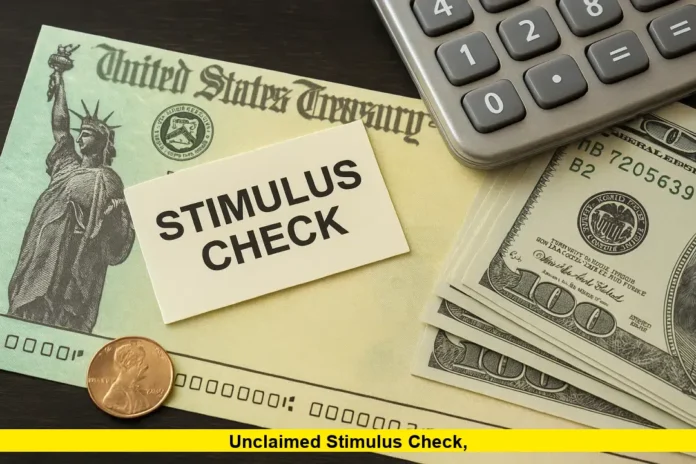An unclaimed stimulus check might still be waiting for you—even in mid-August 2025. Many Americans have missed out on payments they were eligible for, but several states and agencies are still sending funds to rightful recipients.
Federal Updates
The IRS has recently completed the final wave of payments connected to the Recovery Rebate Credit from the 2021 tax year. Around one million taxpayers who missed this credit on their original returns received automatic payments—either by direct deposit or paper check—earlier this year.
These payments ranged up to $1,400 per person and were issued using updated tax filing information from 2023. However, the deadline to file for this credit expired on April 15, 2025. This means that anyone who failed to file before that date can no longer claim those federal funds. Once the deadline passed, all unclaimed amounts reverted back to the U.S. Treasury.
Rumors about a brand-new $2,000 federal stimulus check continue to circulate, but there has been no official confirmation or legislation passed to authorize such a payment. At this time, no new nationwide stimulus program is active.
Read Also- Government Stimulus Checks in 2025: The Latest News and What You Need to Know
Key Points Summary
| Category | Status in August 2025 |
|---|---|
| Federal | IRS Recovery Rebate Credit payments completed; April 15 deadline has passed. |
| Rumored stimulus | No new federal stimulus authorized. |
| State programs | Several states currently issuing rebates or unclaimed property checks. |
State-Level Payments
While federal options are closed, a number of states are actively sending money to eligible residents. For example:
- Alaska is continuing its Permanent Fund Dividend payments, offering up to $1,702 to eligible residents. This includes a base payment and an additional energy relief component.
- Connecticut has launched a program that mails checks automatically to residents with certain unclaimed property under a set value—no claim form required.
- Washington state is in the process of distributing a large amount of unclaimed property funds, with over a million residents potentially eligible. Payments are being sent automatically, and residents can easily check their status online or via text.
These programs operate independently from the federal government, and eligibility rules vary by state.
How to Check if You’re Owed Money
If you suspect you may have missed a federal payment in previous years, you can still verify your status through IRS tools like “Where’s My Refund?” or “Get My Payment.” While new federal claims are no longer accepted for the Recovery Rebate Credit, these tools can confirm whether your payment was sent or returned.
For state payments, visit your state’s unclaimed property website or check official announcements from your state treasury or revenue department. Many states now offer quick online searches that require only your name and city.
Avoiding Scams
Whenever financial relief is discussed, scammers often take advantage of the buzz. Be cautious of unsolicited calls, texts, or emails claiming you are owed a stimulus check—especially if they request personal or banking information. Legitimate agencies will not demand payment to release your funds.
Always ensure you are using official websites or verified phone numbers when checking your payment status. If you receive a suspicious message, report it to your state attorney general’s office or the Federal Trade Commission.
Looking Ahead
While there is no confirmed fourth federal stimulus check, economic conditions, legislative priorities, and political developments could influence future relief measures. Until then, your best opportunity to secure extra funds is by taking advantage of active state programs and regularly checking for unclaimed property.
Many Americans are surprised to find money owed to them from sources like tax refunds, closed bank accounts, insurance payments, and even old paychecks. Claiming these funds often requires just a few minutes online.
If you missed the chance to file for the federal Recovery Rebate Credit, that door has closed. However, opportunities at the state level remain, and checking for unclaimed funds could put money back in your pocket. Don’t wait—take a few minutes to see what you might be owed.
